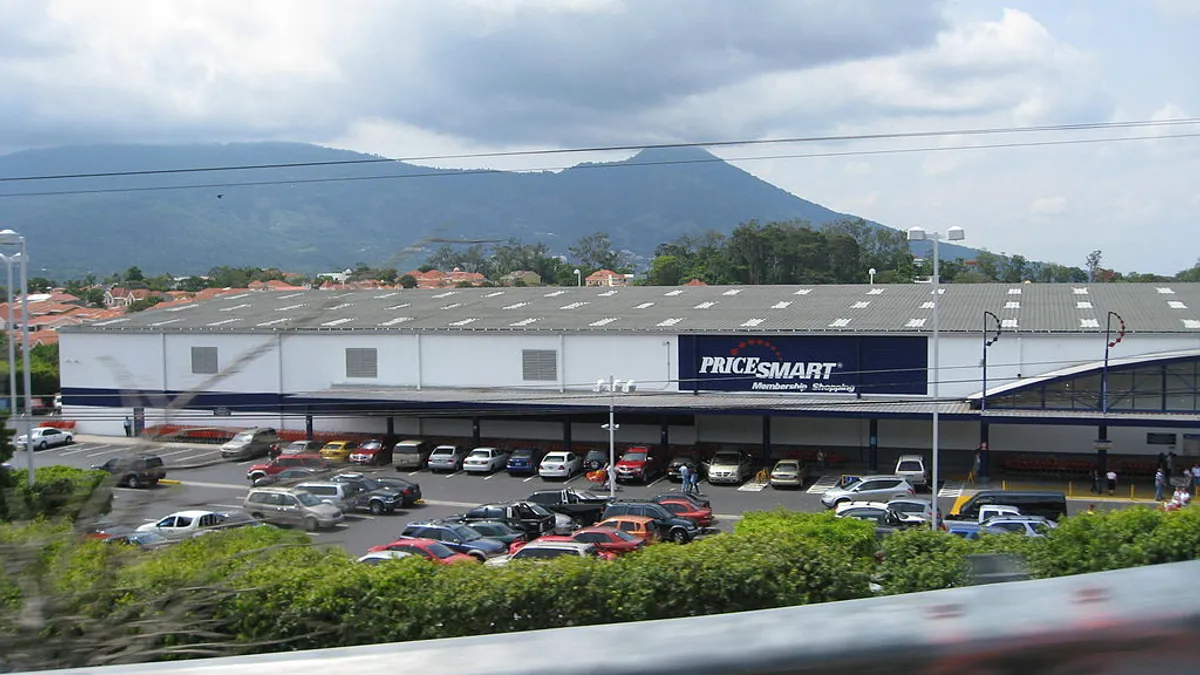Dive Brief:
- PriceSmart — a big box retailer serving 13 countries in Central America and the Caribbean — said on an earnings call it is shifting its distribution model to adjust to "geopolitical global financial considerations."
- The retailer historically relied on its Miami distribution hub to service foreign markets. But tariffs on the "considerable amount of merchandise from the Far East" has now made the model less cost-effective.
- As a result, PriceSmart is planning a 165,000-square-foot facility in Costa Rica. "This regional distribution center will allow us to ship directly into the market in Costa Rica, and not have to deal with some of the tariff problems that could be on the horizon in the United States," said Executive Chairman Robert Price.
Dive Insight:
A recent analysis of PriceSmart's imports to the U.S. conducted by Panjiva Research shows the retailer's reliance on Miami has "exposed the company to the Trump administration's tariffs."
In the 12 months leading up to Sept. 30, 2018, 59.7% of PriceSmart's U.S. imports originated in China. Yet preliminary data suggests the retailer's imports from China may have fallen by a third in October 2018 — shortly after the 10% tariffs on imports of Chinese goods entered force on Sept. 24 — Panjiva said in its weekly newsletter.
Beyond individual line items, tariffs between the U.S. and China are beginning to show how they will shift corporate strategy going into 2019.
A new distribution center is not a quick fix to rising costs. Rather, it is a long-term investment informed by a shifting world of trade. At least, that is how PriceSmart portrayed its decision.
"We're in a competitive world. We're in a world with Amazon — forget the local guys — we've got Walmart, but you have big players, who are very fierce competitors," Price said. "And one of the things that we do not want to do is create what we call an umbrella, so that we give them room to raise margin, so that they can attack us on other products."
Price explained the wholesale model works on a trust system between the retailer and the consumer, in which the customer expects the big box retailer is not leaving anything on the table. Success, he said, relies on getting products from manufacturers to customers in the most efficient way possible.
If PriceSmart pays higher costs of distribution than, say, Amazon or Walmart, it makes the umbrella of opportunity bigger for those competitors in an area where there is little margin left to cushion the price blow. Walmart and Amazon have each reportedly been seeking in-roads into the Latin American retail market.
"Our strategy is to take everything we can in terms [of] the efficiency in buying and keep the lid as tight as we can: so it discourages competitors from coming into our market and for the competitors that are already there, makes their lives miserable," Price said.















